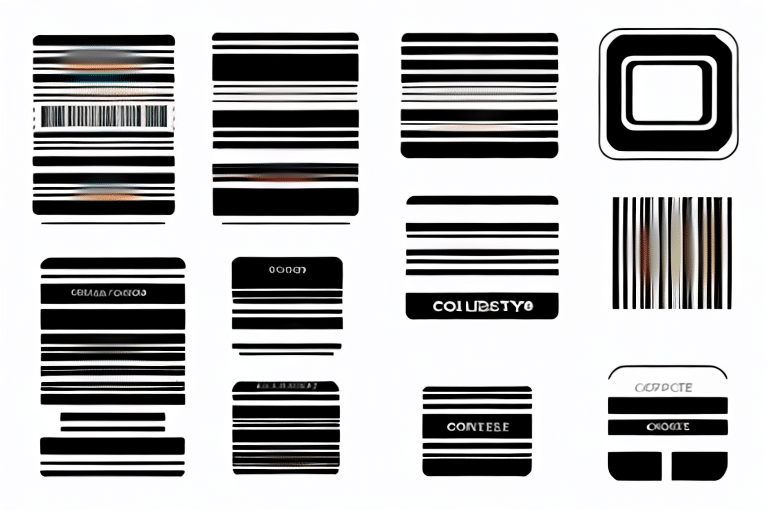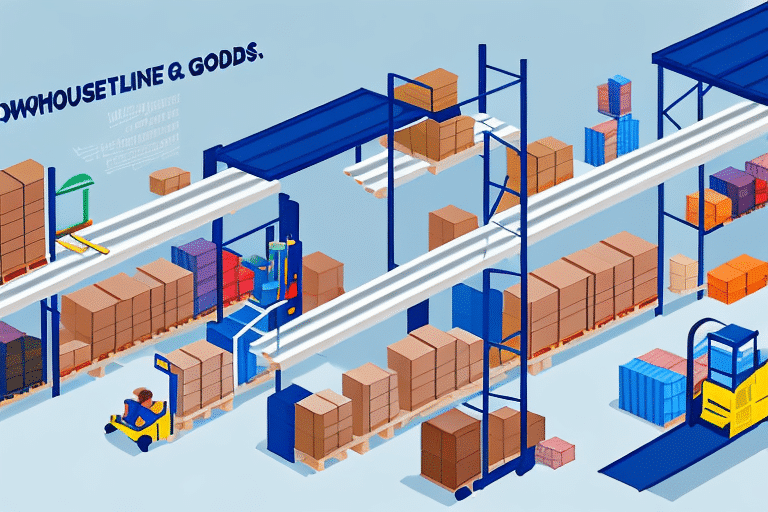Top 10 Barcode Scanners for Automotive Parts and Supplies E-Commerce Businesses
In the competitive landscape of automotive parts and supplies e-commerce, an efficient barcode system is paramount. Relying solely on human-readable labels is no longer sufficient. Implementing robust barcode scanners can significantly enhance inventory management, streamline operations, and improve customer satisfaction. This comprehensive guide explores the top 10 barcode scanners tailored for automotive e-commerce businesses, highlighting their features, benefits, and potential drawbacks to help you make an informed decision.
How Barcode Scanners Can Revolutionize Your Automotive E-Commerce Business
Integrating barcode scanners into your e-commerce operations offers numerous advantages that can transform your business:
- Improved Inventory Management: Real-time tracking of inventory levels ensures optimal stock management, reduces overstock and stockouts, and facilitates timely restocking.
- Increased Efficiency: Rapid and accurate scanning accelerates processes like order fulfillment, shipping, and receiving, minimizing human error and saving valuable time.
- Fraud Prevention: Barcode systems ensure the accuracy of shipments, reducing the risk of shipping incorrect items and enhancing customer trust.
- Data Analytics: Advanced scanners can integrate with inventory and sales software to provide insightful data analytics, driving informed business decisions.
Understanding the Importance of Barcode Scanners in the Automotive Parts and Supplies Business
For automotive e-commerce businesses, efficient inventory management is crucial. Barcode scanners play a vital role in:
- Tracking inventory levels in real-time, enabling dynamic stock adjustments.
- Avoiding stockouts and overstocking by maintaining accurate inventory records.
- Identifying slow-moving items, allowing for strategic promotions and inventory optimization.
- Enhancing order accuracy, leading to improved customer satisfaction and repeat business.
Key Features to Consider When Choosing a Barcode Scanner for Your Automotive E-Commerce Business
Selecting the right barcode scanner involves evaluating several critical features to ensure it meets your business needs:
- Type of Scanner: Choose between handheld, cordless, or fixed-mount scanners based on your operational requirements.
- Scanning Speed: Faster scanners increase productivity by reducing the time per scan.
- Durability: Ensure the scanner can withstand the demanding environments typical in automotive businesses.
- Compatibility: Verify that the scanner integrates seamlessly with your existing software systems.
- Scanning Capability: Opt for scanners that can read damaged, poorly printed, or various barcode types (1D and 2D).
- Connectivity: Consider wireless options for greater mobility or wired connections for stability.
- Battery Life: For cordless scanners, longer battery life minimizes downtime and increases efficiency.
How to Evaluate the Best Barcode Scanner for Your Automotive Parts and Supplies E-Commerce Business
To identify the most suitable barcode scanner, assess the following factors:
- Cost: Balance your budget with the features and durability required for your operations.
- Speed: Higher scanning speeds enhance workflow efficiency, especially during peak times.
- Durability: In harsh industrial environments, a robust scanner is essential to prevent frequent replacements.
- Ergonomics: Comfortable design reduces fatigue during prolonged use, boosting employee productivity.
- Scanning Capability: Ensure the scanner can handle both 1D and 2D barcodes prevalent in automotive parts.
- Environment: Choose scanners suitable for your specific setting, whether it's a busy warehouse or a retail storefront.
Top 5 Handheld Barcode Scanners for Automotive E-Commerce Businesses
Handheld barcode scanners offer unmatched mobility and flexibility, making them ideal for dynamic environments:
- Honeywell Voyager 1202g: Known for its long battery life and durable design, this scanner is a reliable choice for high-volume operations.
- Zebra DS2208: Offers versatility with its ability to scan both 1D and 2D barcodes, compact size, and user-friendly interface.
- Datalogic Gryphon GD4500: Combines durability with high performance, capable of reading damaged or poorly printed barcodes.
- Socket Mobile S700: Lightweight and ergonomic, perfect for extended use without causing strain.
- Symbol LS2208: A cost-effective option that doesn't compromise on performance, suitable for various scanning environments.
Top 5 Cordless Barcode Scanners for Automotive E-Commerce Businesses
Cordless barcode scanners provide the freedom to move around the workspace without the constraints of cables:
- Honeywell 8670 Wireless Ring Scanner: Features a hands-free design with a ring form, allowing for continuous scanning without holding the device.
- Zebra DS3678: Engineered for extreme environments, offering exceptional durability and a wide scanning range.
- Socket Mobile S860: Combines lightweight design with robust performance, ideal for varied operational settings.
- Datalogic Gryphon GD4500: Provides high-speed scanning and is built to withstand tough industrial conditions.
- Motorola LI4278: Versatile with the ability to read both 1D and 2D barcodes, enhancing its applicability across different tasks.
Top 5 Fixed-Mount Barcode Scanners for Automotive E-Commerce Businesses
Fixed-mount barcode scanners are perfect for applications requiring stationary scanning, such as production lines or checkout counters:
- Datalogic Magellan 9800i: Offers high-speed scanning and long-range capabilities, making it suitable for fast-paced environments.
- Honeywell Vuquest 3320g: Compact design with mobile device scanning capabilities, integrating seamlessly with existing workflows.
- Zebra DS9808: Combines high-performance scanning with easy integration options for various industrial applications.
- Sony SRG-X120: High-quality imaging combined with robust construction, designed for reliable performance.
- Opticon OPN-2006: Flexible installation options and excellent scanning accuracy for diverse operational needs.
Pros and Cons of Using Different Types of Barcode Scanners in Your Automotive E-Commerce Business
Understanding the strengths and limitations of each scanner type helps in making an informed choice:
- Handheld Scanners: Pros: Highly mobile and flexible. Cons: May be less durable in harsh environments.
- Cordless Scanners: Pros: Freedom from cables enhances mobility. Cons: Require regular charging and may have limited battery life.
- Fixed-Mount Scanners: Pros: Reliable and require minimal maintenance. Cons: Lack portability and flexibility.
How to Implement a Barcode System in Your Automotive Parts and Supplies E-Commerce Business
Successfully implementing a barcode system involves several key steps:
- Assess Your Needs: Determine the specific requirements of your business, including the types of barcodes used and the volume of scanning needed.
- Select the Right Scanner: Choose scanners that align with your operational needs and budget.
- Set Up a Labeling System: Develop a standardized barcode labeling system to ensure consistency and accuracy across all inventory items.
- Integrate with Software: Ensure your barcode scanners are compatible with your inventory management and e-commerce platforms.
- Train Your Team: Provide comprehensive training to employees on how to use the scanners and manage the barcode system effectively.
- Test and Optimize: Conduct trials to identify any issues and refine the system for optimal performance.
Common Mistakes to Avoid When Using a Barcode Scanner in Your Automotive E-Commerce Business
To ensure the effectiveness of your barcode system, avoid these common pitfalls:
- Poor Labeling Practices: Inconsistent or unclear barcode labels can lead to scanning errors and inventory inaccuracies.
- Inadequate Training: Undertrained employees may misuse scanners, resulting in inefficiencies and errors.
- Ignoring Software Compatibility: Using scanners that are not compatible with your software can disrupt operations and data integrity.
- Neglecting Maintenance: Failing to regularly maintain and clean scanners can reduce their lifespan and performance.
- Overlooking Scalability: Not planning for future growth can hinder your ability to expand operations smoothly.
A Guide to Troubleshooting Your Barcode Scanner in an Automotive Parts and Supplies E-Commerce Business
Effective troubleshooting ensures minimal downtime and maintains operational efficiency:
- Check Power Supply: Ensure the scanner is adequately charged or connected to a power source.
- Clean the Scanner: Remove any debris or dirt from the scanner lens to prevent scanning issues.
- Verify Software Settings: Ensure the scanner’s settings are correctly configured to work with your software.
- Update Firmware: Keep the scanner’s firmware updated to the latest version for optimal performance.
- Consult the User Manual: Refer to the manufacturer’s guidelines for specific troubleshooting steps.
- Contact Support: If issues persist, reach out to the manufacturer’s customer support for assistance.
How to Choose the Right Software to Use with Your Barcode Scanner in an Automotive Parts and Supplies E-Commerce Business
Selecting appropriate software is crucial for seamless barcode system integration:
- Compatibility: Ensure the software is compatible with your barcode scanners and other existing systems.
- Functionality: Look for features like real-time inventory tracking, reporting, and integration with e-commerce platforms.
- Scalability: Choose software that can grow with your business, accommodating increased inventory and transactions.
- Ease of Use: User-friendly interfaces reduce the learning curve and enhance employee productivity.
- Support and Training: Opt for software providers that offer robust customer support and training resources.
- Cost: Balance the features you need with your budget to find a cost-effective solution.
Popular software options include Oracle Warehouse Management, SAP Warehouse Management, and Netstock.
The Future of Barcode Technology in the Automotive Industry
Barcode technology continues to evolve, promising exciting advancements for the automotive e-commerce sector:
- Enhanced Accuracy: Innovations in scanning technology will reduce errors and improve data integrity.
- Integration with IoT: Barcode systems will increasingly integrate with Internet of Things (IoT) devices for smarter inventory management.
- Artificial Intelligence: AI-driven analytics will provide deeper insights into inventory patterns and customer behavior.
- Mobile Compatibility: Future scanners will offer greater mobile integration, supporting on-the-go operations.
- Sustainability: Development of eco-friendly barcode labels and scanners will align with sustainable business practices.
Case Studies: Successful Implementation of Barcode Scanners in Automotive Parts and Supplies E-Commerce Businesses
Real-world examples highlight the tangible benefits of barcode scanner integration:
- Company A: By implementing the Honeywell Voyager 1202g, Company A reduced product returns by 80% through enhanced order accuracy.
- Company B: Utilizing the Zebra DS2208, Company B increased their operational efficiency by nearly 40%, enabling faster order fulfillment and improved customer satisfaction.
- Company C: Adopting a fixed-mount scanner like the Datalogic Magellan 9800i, Company C optimized their warehouse layout, resulting in a 30% increase in scanning speed and reduced labor costs.
In conclusion, barcode scanners are indispensable tools for automotive parts and supplies e-commerce businesses. By selecting the right scanner and implementing a comprehensive barcode system, businesses can achieve precise inventory tracking, minimize errors, enhance operational efficiency, and deliver superior customer service. With the continuous advancements in barcode technology, staying updated and adapting to new innovations will ensure sustained growth and competitiveness in the market.








